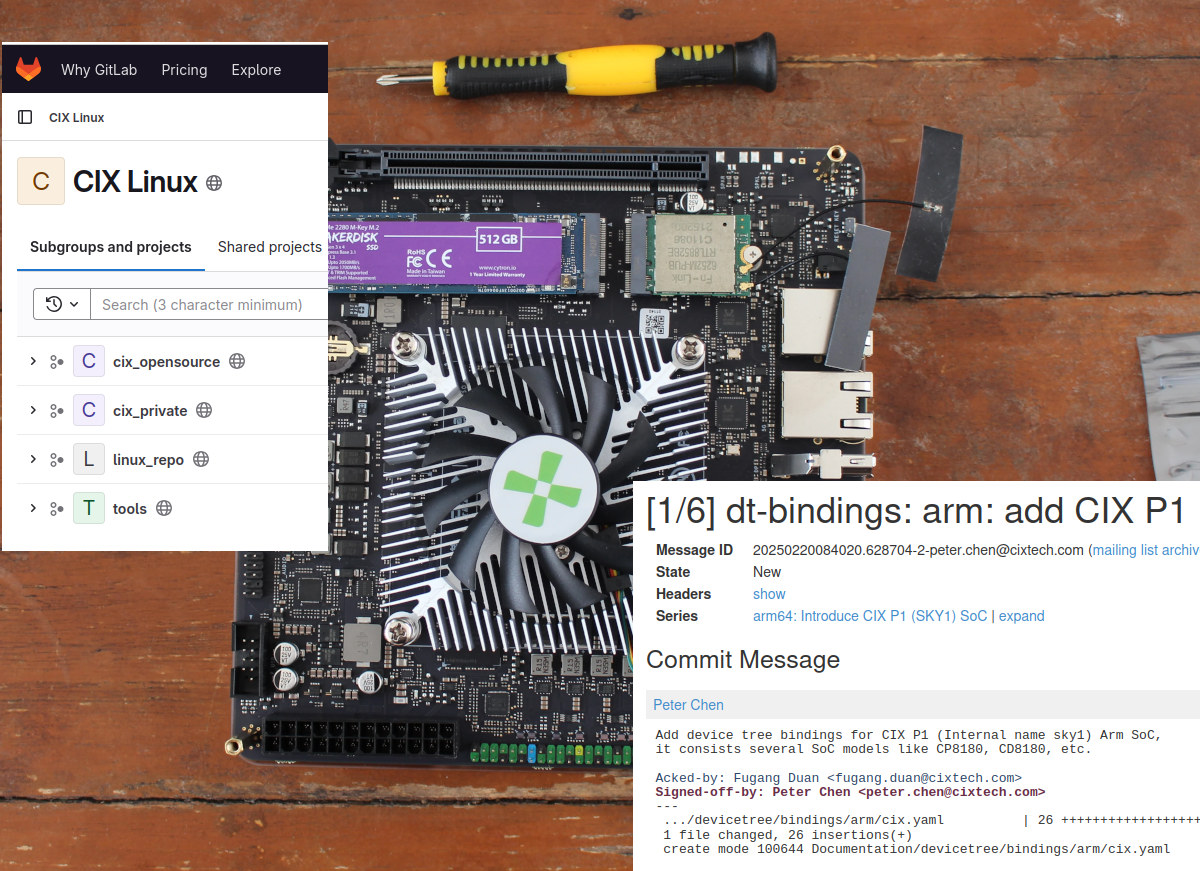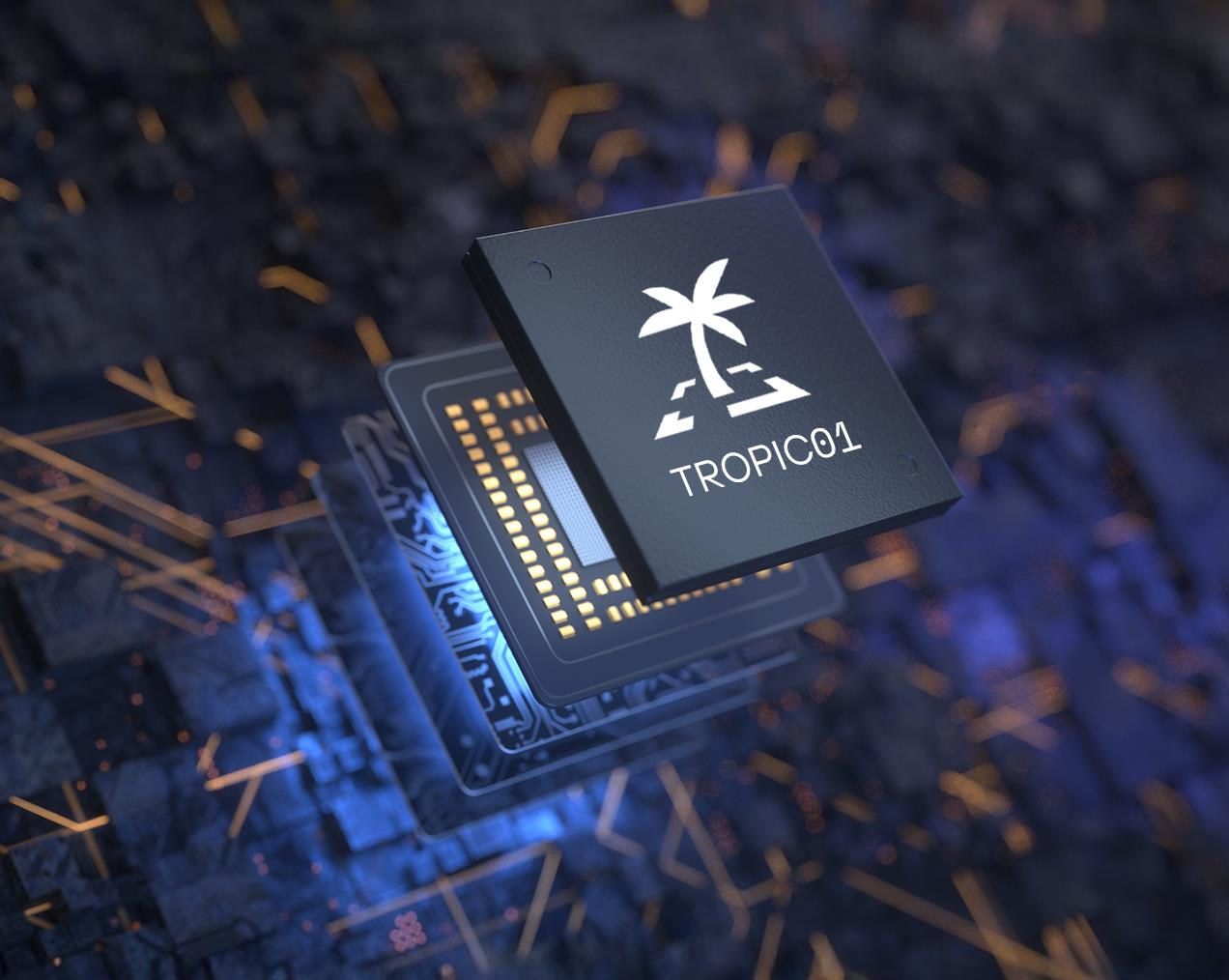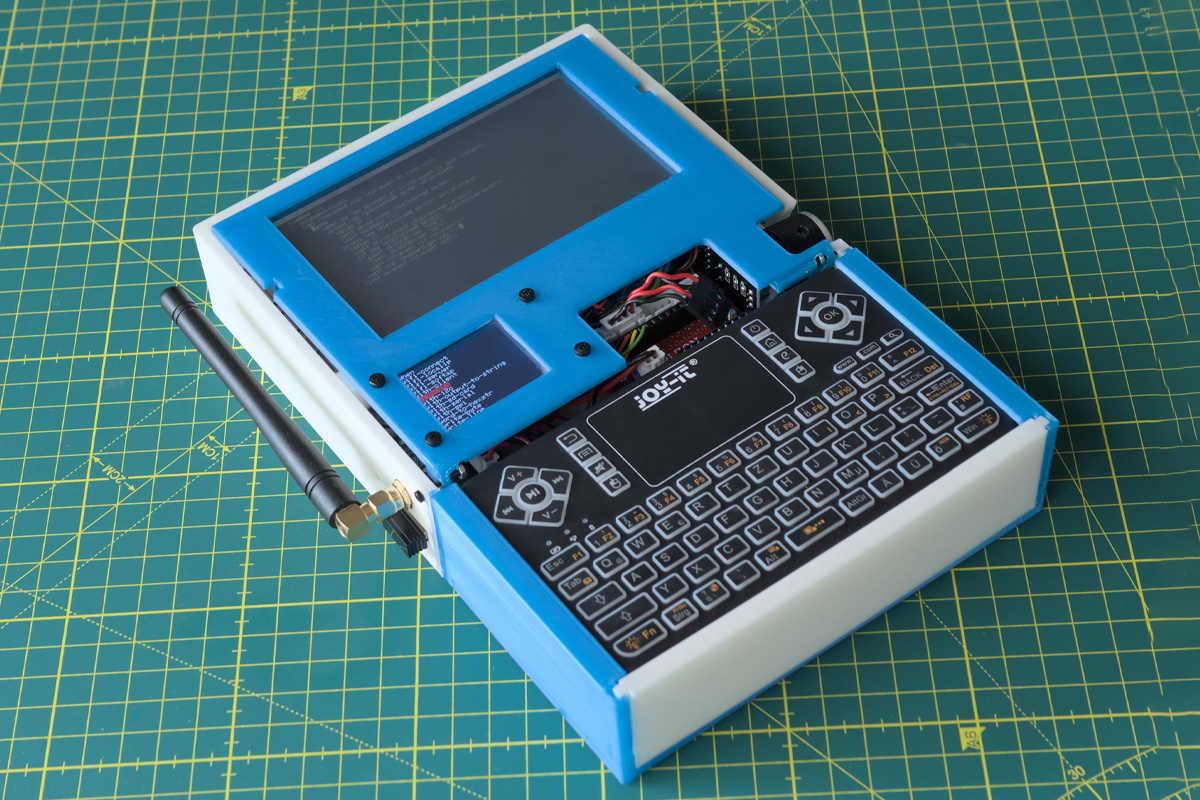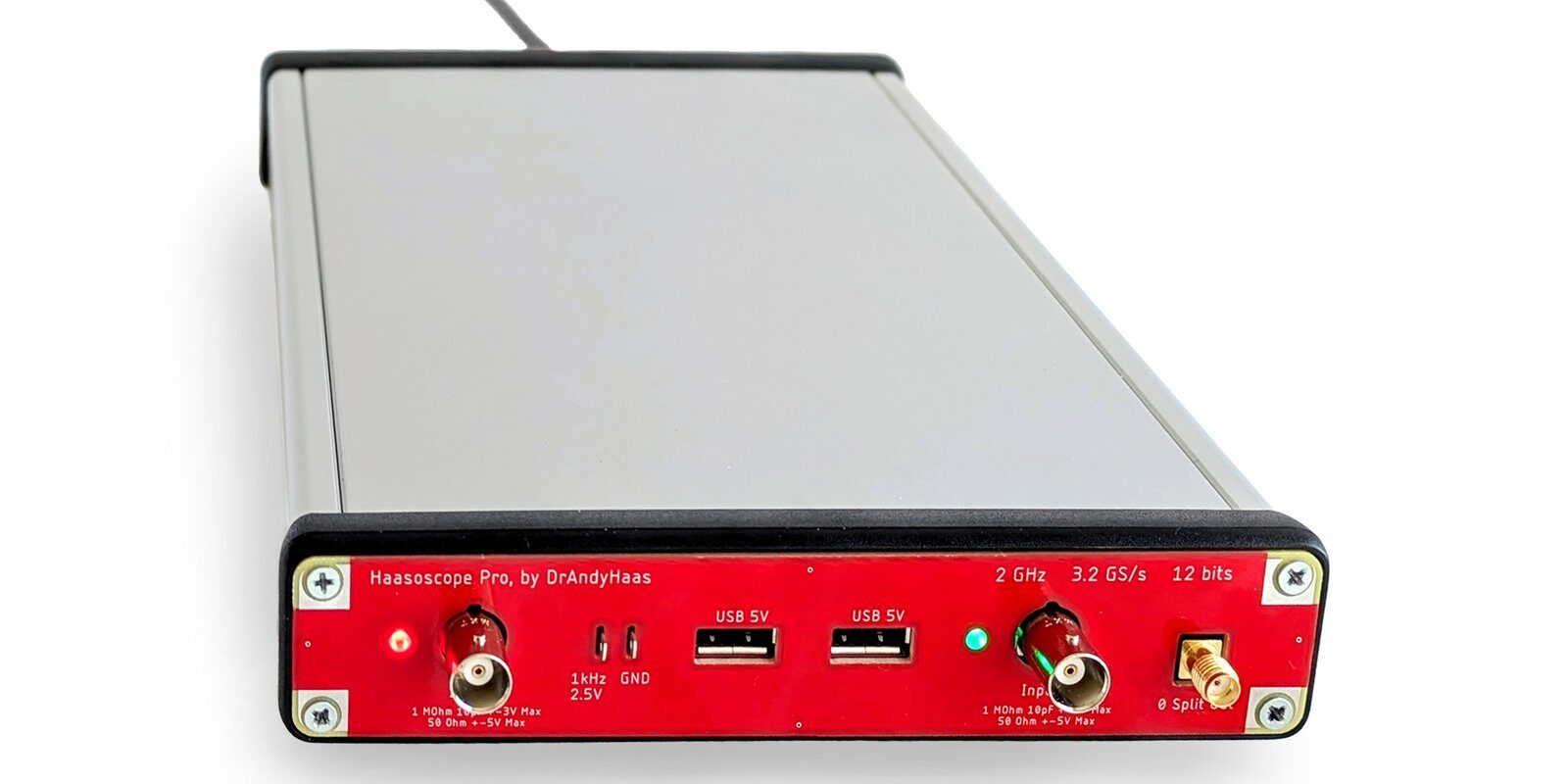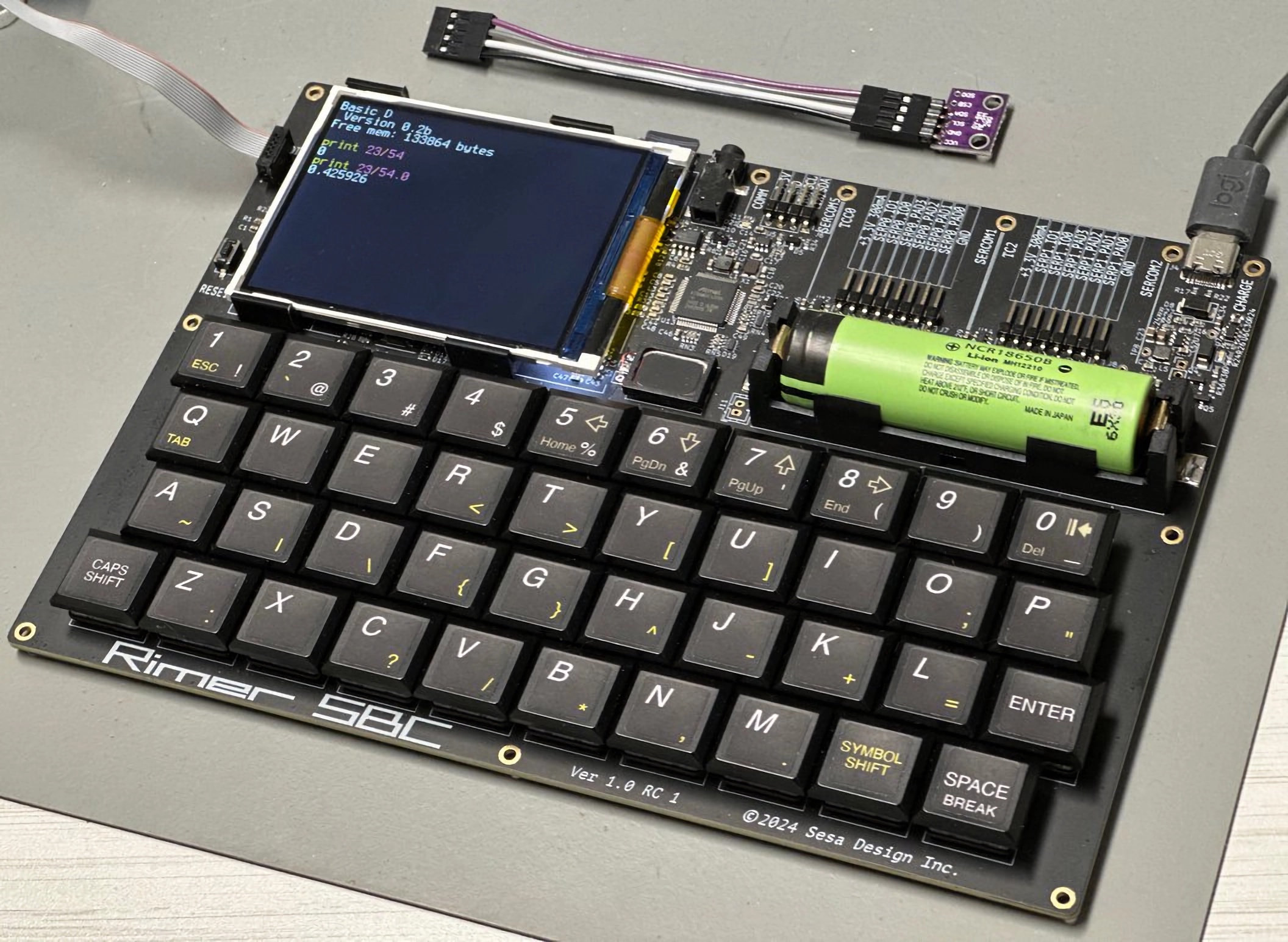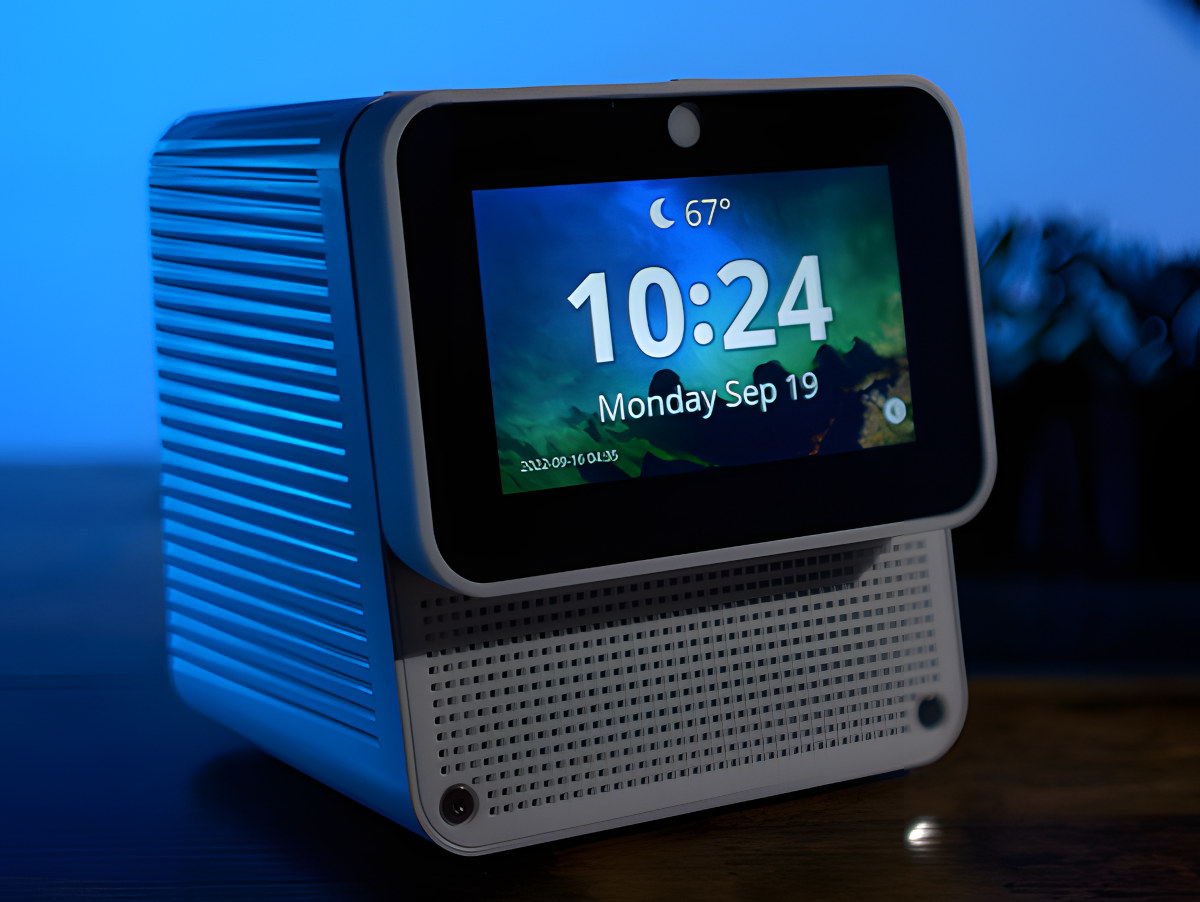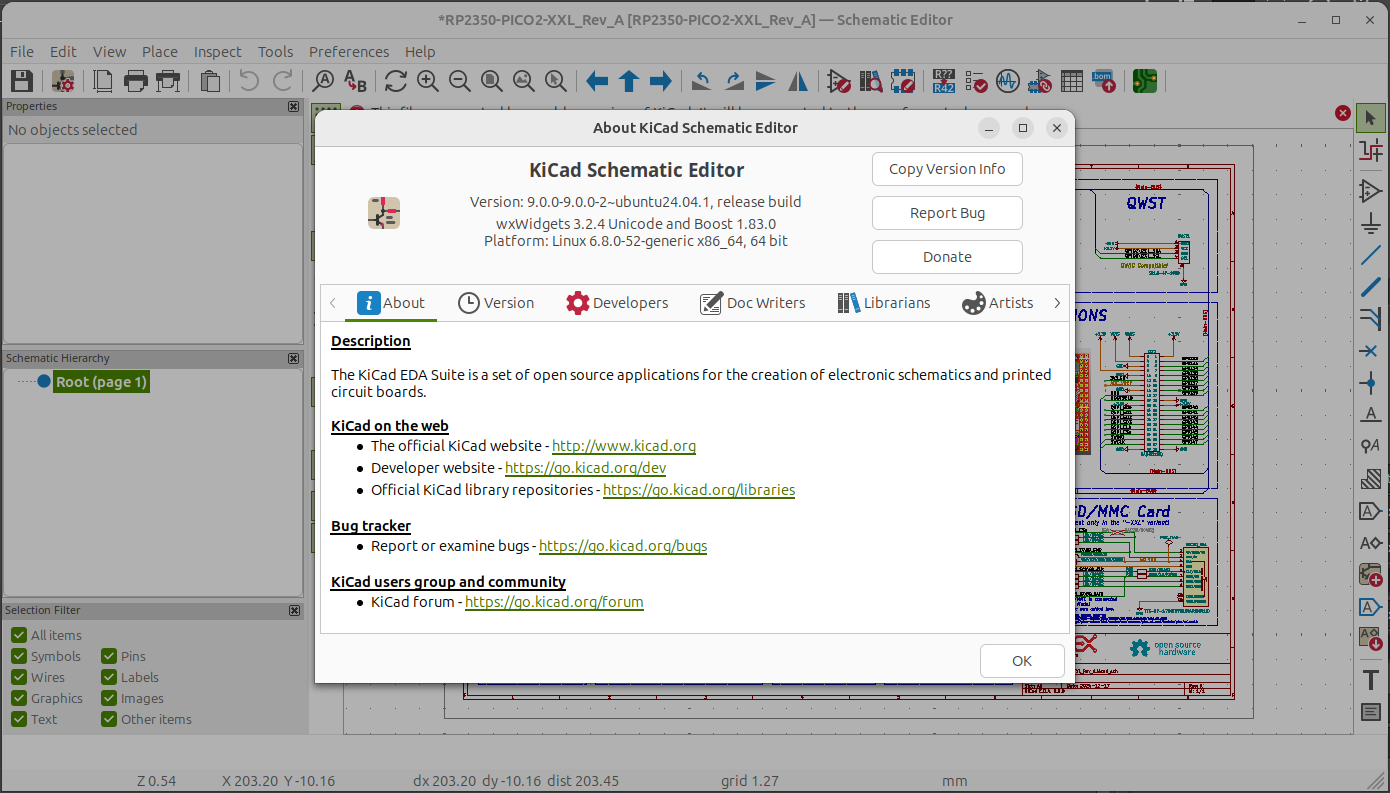When the Orion O6 mini-ITX motherboard with a CIX P1 12-core Armv9 SoC was announced in December 2024, we were told binary releases would start on January 15, 2025, and the source code would be released later in Q1 2025. Tom Cubie further explained that upstreaming of the CIX kernel would start in Q2 of 2025, and Linux 6.1 with Device Tree plus Linux 6.6 with ACPI would be supported in the meantime. I’ve been able to quickly check the Debian 12 binary release on the Orion O6 motherboard at the end of January, but as I was looking for an updated image for the second part of the review, I noticed there weren’t any new Debian 12 images so far. That does not mean there haven’t been any work done, as the forums are somewhat active and I’ve been told Radxa is even more active on Discord, although I […]
Tropic Square TROPIC01 is an auditable, open architecture, tamper-proof RISC-V secure element (SE) for IoT and microcontrollers
Tropic Square TROPIC01 is an auditable, open architecture, tamper-proof RISC-V based secure element (SE) designed to interface with microcontrollers in products such as hardware wallets, authentication solutions, biometric wallets, medical devices, and other IoT solutions. There are plenty of secure elements on the market, but their design is usually closed-source, so the design can’t be easily verified by third parties and flaws may remain hidden even when discovered. With its open designs, potentially flaws in the TROPIC01 can easily be found, disclosed, and fixed by the community, and such verifiable design improved trust in the security of the solution. TOPIC01 secure element specifications: CPU core – RISC-V IBEX Controller Core with secure firmware updates and customizable FW upon request Memory OTP to store x.509 certificate and keys Flash to store general purpose and PIN verification data Memory address scrambling On-the-fly encryption Error correction code protection Communication Interface SPI application control […]
LispDeck handheld lisp computer Runs uLisp on Teensy 4.1 with Wi-Fi, LoRa, and two screens
Designed by Hartmut Graw, the LispDeck is a Handheld Lisp computer built around the Teensy 4.1 microcontroller for Lisp programming on the go. It features a dual-screen setup with a 5-inch touchscreen and, a secondary ST77350-based TFT display. It also has an Adafruit RFM96 radio module, an ESP8266 Wi-Fi module, a rotary encoder, an SD card for storage, and a detachable wireless USB keyboard, all housed in a 3D-printed case. Running the uLisp language, it features a standalone Lisp programming environment without needing a PC or tablet. It is an evolution of the LispBox, with a portable and battery-powered design, which also maintains compatibility. Unlike Raspberry Pi-based cyberdecks, the LispDeck is designed for complete control over the system without the complexity of Linux. It is useful for Lisp enthusiasts who want a compact, dedicated computing device that’s fully documented. LispDeck Specifications SoC – NXP i.MX RT1062 via Teensy 4.1 board […]
Haasoscope Pro open-source, real-time sampling USB oscilloscope supports up to 2GHz bandwidth (Crowdfunding)
The Haasoscope Pro is an open-source hardware, high-bandwidth, and real-time sampling USB oscilloscope. Building upon its predecessor, the Haasoscope, the new Pro model offers a bandwidth of 2GHz, 12-bit resolution, and a 3.2GS/s sampling rate. The Haasoscope Pro USB oscilloscope is “designed to be low cost, while maintaining super-fast performance.” While it only comes with 2 channels, the flexible design makes it possible to combine and sync multiple devices (using Cat5 cables) to double the sample rate or add more channels. The oscilloscope works with standard x10 passive probes but a custom active probe, the Haasoscope Pro-be, is also offered. It supports the full 2GHz analog bandwidth and is priced much cheaper than similar probes. The Haasoscope Pro USB oscilloscope’s high sampling rate and bandwidth make it ideal for radio frequency signal analysis and high-speed digital debugging. It is similar to the ThunderScope Thunderbolt and PCIe oscilloscope which offers more […]
Rimer SBC is a Microchip SAMD51 Cortex-M4-based development board with a built-in LCD, keyboard, audio, and battery
The Rimer SBC is a development board based on a Microchip SAMD51 Cortex-M4 microcontroller and designed as a complete standalone playground with a built-in display, keyboard, audio input and output, a few I/Os, and a 60x20mm LiPo battery or an optional 18650 battery holder. It is specifically based on the Microchip ATMSAMD51J20A microcontroller, running at 120MHz with 1MB of flash memory and 256KB of RAM, and utilizes many of the peripherals available in the TQFP64 package. The board includes a 3.2-inch 320 x 240 IPS TFT LCD connected via high-speed SPI and a 40-key mechanical keyboard scanned via an I2C GPIO expander. It also features an amplified 700mW speaker output and buffered analog input and output is routed via the 3.5mm audio jack. The Rimer SBC’s standalone nature makes it suitable for on-the-go development, rapid prototyping, and educational purposes without the need for external hardware. The maker also plans to […]
The OpenVoiceOS Foundation aims to enable open-source privacy and customization for voice assistants
The OpenVoiceOS Foundation, or OVOS Foundation for shorts, is a non-profit organization dedicated to advancing open-source voice assistant technology and offers an open-source privacy-focus alternative to voice assistant by large companies like Amazon, Google, and Apple. One of the founders, Peter Steenbergen (j1nx), explained to us it all started when he read an article on CNX Software about Mycroft Mark II voice assistant hardware in 2018. He ended up being involved and created “MycroftOS“, later renamed to “OpenVoiceOS – Mycroft Edition”, as a Just Enough OS utilizing Buildroot and working on the Mark II. There were some tensions with the open-source community at some point, and the Mycroft project went south from there and the company had to close in 2023. Eventually, OpenVoiceOS took over the codebase of Mycroft A.I. and managed to merge lingering PR from the open-source community. Together with NEON A.I., they took over the Mycroft A.I. community […]
KiCad 9 released with support for embedded files, tables in schematics, custom ERC/DRC errors, mouse scroll wheel actions, and more
KiCad 9 open-source EDA software has just been released with a range of new features such as support for embedded files (fonts, 3D files, PDF), tables in schematics, custom ERC/DRC errors, warnings, and exclusion comments, mouse scroll wheel actions, multiple track drag, and much more. The latest KiCad 9.0.0 release includes 4,870 unique commits from hundreds of developers and translators, and the KiCad library has further gained 1500 new symbols, 750 new footprints, and 132 new 3D models. There are way too many changes to list them all here, so I’ll mention some highlights here: Jobsets (predefined output jobs) – Feature that provides predefined sets of ‘jobs’— plotting, exporting, and running DRC—on schematics and PCBs. Independent jobset files are reusable as users may want to create output pipelines that they can apply across their projects for consistency. Jobsets can be run from the command line or the KiCad GUI. Embedded […]
LLMStick – An AI and LLM USB device based on Raspberry Pi Zero W and optimized llama.cpp
Youtuber and tech enthusiast Binh Pham has recently built a portable plug-and-play AI and LLM device housed in a USB stick called the LLMStick and built around a Raspberry Pi Zero W. This device portrays the concept of a local plug-and-play LLM which you can use without the internet. After DeepSeek shook the world with its performance and open-source accessibility, we have seen tools like Exo that allow you to run large language models (LLMs) on a cluster of devices, like computers, smartphones, and single-board computers, effectively distributing the processing load. We have also seen Radxa release instructions to run DeepSeek R1 (Qwen2 1.5B) on a Rockchip RK3588-based SBC with 6 TOPS NPU. Pham thought of using the llama.cpp project as it’s specifically designed for devices with limited resources. However, running llama.cpp on the Raspberry Pi Zero W wasn’t straightforward and he had to face architecture incompatibility as the old […]


